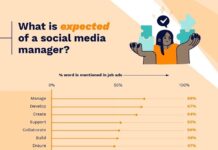The grounding of the Costa Concordia cruise ship last month was a public relations nightmare for Carnival Cruise Corp., and the public did not hesitate to voice their opinion on social media channels. After the first few days, Carnival made the decision to go silent on social networks, and missed a huge opportunity to interact with consumers. Was Carnival right or wrong to pause the conversation?
And, will they try a different strategy moving forward? We’re about to find out: news outlets are reporting another Costa cruise ship adrift – without power – off the Seychelles. How will the Carnival social media team handle this latest crisis?
Carnival Reacts to the Costa Concordia Crisis
The grounding of the Costa Concordia took place the night of January 13, 2012, and was all over the media on January 14th. Carnival’s first response on Facebook came late on the 13th: “Our thoughts are with guests and crew of the Costa Concordia. We are keeping them in our hearts in the wake of this very sad event.” For the next five days, Carnival’s Facebook page posted the company’s official statement and information about evacuation & emergency procedures, cruise safety, ship navigation systems, and posted Carnival’s onboard safety video. But while this information answered the questions and comments of some fans, Carnival did little else to respond to the myriad of concerns pouring in related to the Concordia grounding.
The company Twitter account (@CarnivalCruise) largely mimicked the content of Carnival’s Facebook page, in many cases linking back to the content on Facebook. Carnival is also represented on Twitter by CEO Micky Arison, an avid tweeter (@MickyArison). In those first few days after the grounding, Advertising Age reports that he “suddenly changed his tune –- from a smack-talking, fun and energetic basketball fan and cruise enthusiast tweeting 20-30 times a day, to a quieter, more measured executive.”
Declaring Social Media Silence
On January 19 – six days after the grounding – Carnival chose to suspend social media activities, with a brief post on Facebook, a shorter version on Twitter, and a single tweet from Micky Arison (Advertising Age).
- On Facebook, 1/19/12: “Out of respect for all those affected by the recent events surrounding our sister line, Costa cruises, we are going to take a bit of a break from posting on our social channels.”
- From @MickyArison: “I won’t be as active on Twitter for the next while. Helping our @costacruises team manage this crisis is my priority right now. Thnx”
Public reaction
On Facebook, the “Out of respect…” post announcing Carnival’s social media silence received an impressive response, garnering over 5,000 ‘likes’ and 850 comments. The comments were a mix of positive and negative sentiment, with some fans strongly supporting the brand and others expressing anger and frustration.
While more information came to light regarding the Concordia’s grounding (most of it not favorable for Carnival), the cruise line remained completely silent on Facebook — although comments on their last post continued to flow in — until January 24th, when the brand posted a “we’re ready to re-engage” post. The post received 3,000 ‘likes’ and over 600 comments, and once again the reaction was mixed. Some fans were upset and particularly disturbed by Carnival’s offer of 30% off to those who were on the Concordia. Others were loyal Carnival fans expressing their continued support of the brand.
But comments on Facebook only tell part of the story. To gain a broader picture of social media sentiments around the grounding of the Concordia, Advertising Age compared the comments and questions on blogs, forums, Facebook and Twitter about Carnival in the pre-Concordia two-week period and post-Concordia two-week period. In those four weeks, Carnival faced a precipitous decline on social media channels, from 91% positive/neutral (48% positive) before the grounding, down to 66% neutral (only 16% positive) after the tragedy.
Is silence ever the right choice on social media?
Gini Dietrich of SpinSucks wrote “The web is not something you turn on and off. Interacting with people is not something you can avoid when it’s not convenient for you. Sticking your head in the sand, in order to avoid criticism, is ridiculous in today’s real-time, 24/7 world.”
The social conversation never stops happening – and Carnival chose to simply ignore it, rather than actively addressing public concerns – and saw a significant drop in approval. Carnival’s attempt to remove itself from the conversation only left a blank space (with Carnival’s name on it) for fans to fill with their sentiments. In this case, there was a lot of anger and confusion about the Concordia disaster – but to be fair, there were also many prayers for the victims, support for Carnival, and praise from loyal fans of the brand.
In the world of social media, withdrawal looks very much like admitting defeat; keeping a voice and remaining transparent and accountable to your fans is the way to keep them coming back. But in this case, many fans stuck up for the brand while Carnival itself remained silent. If the brand had stayed present, would fans have rallied in the same way? And would Carnival have been able to win over angry fans by addressing their concerns more directly?
Was it truly a “social media fail” – as the media has been so eager to label it? As the Concordia’s captain goes to trial and further developments come to light, Carnival was sure to be back in the spotlight.
And with another Costa ship in distress since last night, we’re still waiting for any mention of the current crisis from the company’s Facebook or Twitter accounts.
For a different approach to crisis communication, see our post Social Media Nightmare: Citibank “Has Customers Arrested.” Video Goes Viral. Now What?


